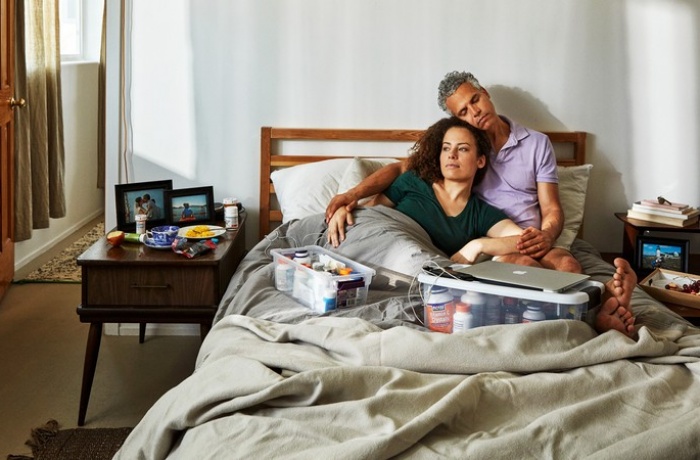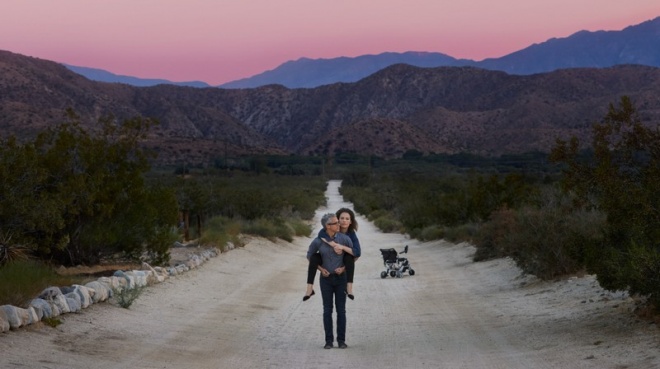CHANGE IT! Impact Lab at the Travelling Docudays UA
CHANGE IT! Impact Lab at the Travelling Docudays UA

At the March festival in Kyiv, Docudays UA presented its impact campaign lab called CHANGE IT! Impact Lab for Activists & Doc Makers. Today, it continues its work in the cities and towns that host the Travelling Festival. The lab involves screenings of three films and video recordings of workshops where impact campaign representatives shared their own experiences of using documentaries, social media and film promotion on social media as effective agents of change.
Thus, each of our regional partners has a chance to become a part of powerful impact campaigns, to demonstrate high-profile documentaries in their regions, and to encourage society to dialogue and action for solving important social problems.
The Academy Awards nominee Minding the Gap by Bing Liu paints a detailed picture of everyday life in a depressive industrial American city. Its confused residents are suffering from unemployment and poverty. Some drink, some beat their wives, and some work long hours to feed their families. But all of them are depriving their children of the most important thing: their parents’ attention.
The teenagers who go to skateboarding parks to escape their problems find solace in difficult and dangerous tricks, think about what it means to be human, and dream of a different adult life. Bing Liu and his mother are also victims of domestic violence, and the camera becomes a tool of psychological support for the teenager as he films himself and his friends. Years later, when the young director returns to his hometown, he sees that not all of his friends managed to escape the trap of alcohol addiction and violence. Some of them, as if on a spiral, continue to repeat their parents’ mistakes.
At the workshop in Kyiv, Megan Vandervort from the Picture Motion impact campaign agency told the audience about how the film managed to achieve such success. In particular, Megan presented the impact strategies and tactics used in Minding the Gap campaign, as well as the ways to determine the impact results.

A shot from Bing Liu's film "Be careful, fail!"
Death by Design is a troubling documentary in which the director Sue Williams demonstrates the consequences of humanity's dependence on electronics. In her investigation, the filmmaker travels the planet, focusing on the horrifying facts of gadget manufacturing and the inhuman exploitation of workers.
In the Silicon Valley, cancer prevalence among industrial workers is several times higher than the country average. In China, there are piles of garbage around factories, and companies ignore health safety instructions and working hour regulations for workers.
Big corporations with positive image think only about their own enrichment, ignoring people’s health and ruthlessly destroying the environment. Given the powerful material leverage in the hands of big syndicates, it is almost impossible to influence them. When one country limits their manufacturing with regulations, they move to another country.
This is a provocative film that inspires us to think about responsibility for our purchases and to demand that the companies which manufacture electronics stop harming the planet and people’s health.
In March, Death by Design was presented by Caitlin Boyle. She founded the Film Sprout distribution firm in 2009 to promote the idea of the capacity of films to affect grassroots change in the society. She engaged the audience for over fifty films. Using the example of Death by Design, Caitlin told us how grassroots audience initiatives and civic actions such as petition-signing campaigns create new opportunities for documentaries that aim to create change in the world.
The film Unrest, a vulnerable and honest story of a Harvard student Jennifer Brea, reveals the hidden world of millions of people abandoned by medicine. Before her wedding, the young woman was affected by a little-known illness—the chronic fatigue syndrome. She finds herself trapped in bed, while doctors shrug helplessly, emphasizing that “it’s all in her head.” Jennifer picks up a camera and starts filming the darkest moments of her life. Limited by the space of her own bed, she travels by Skype to visit other people in the same situation.
According to experts, 15 to 30 million people across the world suffer from the syndrome. The illness affects several systems simultaneously—the systems of neurological, immune, endocrine and energy circulation—ruining the coordinated work of the whole body. Many sufferers end up trapped in their beds forever.

Jennifer and her husband Omar
Thanks to the world wide web, the filmmaker and the activists managed to organize protests in different countries to draw attention to the problem and make governments assign funding to research the illness and search for treatment.
The campaign around the film Unrest was discussed in her workshop by Rebecca Ashdown, a campaign director for Together Films, a marketing, distribution and data agency. She specializes in developing strategic partnerships to help content reach as wide an audience as possible; she also manages the organization of screenings for Together Films products in cinemas and other locations. At the meeting, Rebecca presented the unique hybrid distribution model, focused on the creative ways of maximising non-theatrical screening campaigns and reaching your target audience using the right platform.
The video recordings of the workshops will be available to the public at the online platform DOCU/SPACE by the end of October.
The schedule of screenings and events in each region can be found at this link.












